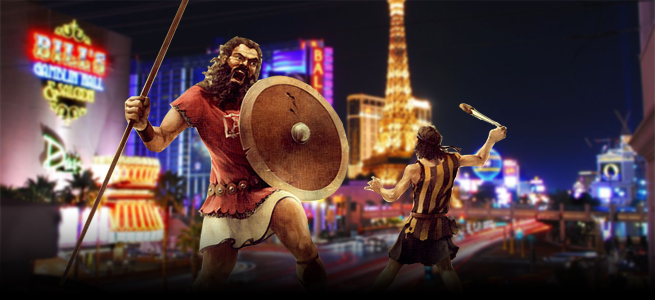
Workers are tightening the last bolts on a sprawling booth city, engineers are busy swapping cables on prototype TVs, and somewhere on the Las Vegas strip, a gaggle of business execs are already doing something regrettable. It’s time for the 2013 International CES.
For those unacquainted with the largest tradeshow in the Americas, it goes something like this: Three thousand consumer technology companies from across the globe spend millions of dollars to congregate in the Nevada desert and exhibit their latest creations under a haze of strobe lights, throbbing bass and free booze.
The ensuing madness is legendary, and for years, CES has stood as the Mecca of all things silicon, a Holy Land for anyone looking to get a glimpse at the future of tech.
Except Apple isn’t here. Google lurks in private meeting rooms. Amazon barely makes a peep. And from all early indications, the hottest phones are being held back for next month’s Mobile World Congress in Barcelona. Does CES still have a purpose in 2013?
As more and more companies call their own shots by announcing products on their own schedule – or attending entirely different shows – the relevance of this multimillion dollar spectacle seems to come into question again every year.
My answer: CES absolutely still has a purpose. Despite the admonitions of company bean counters who watch the Amex charges pile up every year and jaded journalists suffering blisters and temporary hearing loss, this bizarre spectacle still needs to exist. CES is the underdog’s chance to shine.
From companies that make awesome laptops (sans glowing fruit) to companies that make USB thumb drives with a mechanical dogs that hump your computer when you plug them in, this is where they come to get noticed. Discovered. Written about. Everyone shares the same 1.87 million square foot playing field.
Not every company has the funds to fly hundreds of gawkers to an elaborately choreographed launch in a private auditorium, and not every one should. Instead, they come to the most insanely competitive venue on the face of the earth with faith in their products, alcohol in their veins and silicone in their booth babes’ boobs.
The products, it’s worth noting, still manage to impress without a guy in a turtleneck reminding you how “magical” they are every 15 seconds. From TVs the size of your wall to autonomous robots, speakers that rattle your bones and preternaturally thin smartphones rivaled only by the models holding them, you’ll find it all here.
CES is still the best glimpse at the tech you’re going to own in 2014 and beyond. Which is why we’re here, roaming 32 football fields’ worth of DayGlo carpet to root out the best of the best from more than 3,000 exhibitors. Whether it’s home theater, computers or phones you’re interested in, we’ll have boots on the ground covering it, live, all week.
So stay tuned, stay intrigued, and wish us luck staying sane. We’re going in.
Editors' Recommendations
- CES 2022 felt a bit lacking in the smart home department
- What to expect at CES: Fringe, futuristic, and emerging technology
- How Epic’s war with Apple and Google could backfire
- At CES 2020, technology is still the hero
- How Amazon and Google’s streaming feud helped make Roku the streaming king


